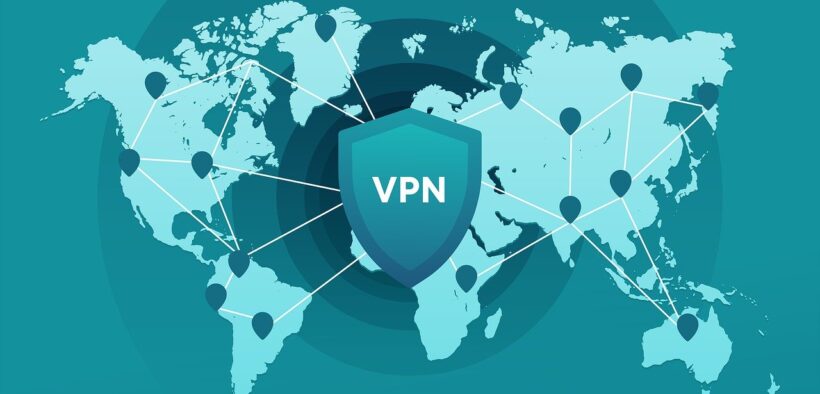VPNs in Small Business Security: Why You Need One Now
Share

VPNs have become crucial for small businesses as cyber threats grow more frequent and sophisticated. Many small business owners mistakenly believe they’re too insignificant to be targeted, but the reality is, these businesses are often seen as easier prey by cybercriminals. With limited IT resources and defenses, protecting your business is more challenging than ever—but this is where a VPN can make all the difference.
What is a VPN?
A Virtual Private Network (VPN) creates a secure, encrypted connection between your online devices and the internet. Think of it like a private, protective tunnel for your data, making it nearly impossible for hackers or unauthorized users to see what you’re doing online. VPNs hide your IP address, encrypt sensitive information, and allow you to browse or conduct business safely, whether you’re in the office or on the go.
There are different types of VPNs—such as site-to-site or remote access—but they all serve the same essential purpose: safeguarding your data and protecting your business from cyber threats and computer viruses.
Why Small Businesses Are Easy Targets for Cyber Threats
Many small businesses underestimate how vulnerable they are to cyberattacks. They assume that only large corporations with vast stores of data are targeted by hackers. Unfortunately, the opposite is often true. Small businesses typically have fewer security measures in place, making them attractive targets.
Some of the most common vulnerabilities include:
- Remote work: With more employees working from home or in coffee shops, unsecured Wi-Fi networks are often used, increasing the risk of data breaches.
- Weak password policies: Many small businesses lack strict password protocols, leaving their systems open to attacks.
- Limited IT budgets: Small businesses may not have the funds to invest in advanced security systems, making it easier for hackers to exploit weaknesses.
In the age of e-commerce and online transactions, safeguarding your customer data and communications is vital. If a breach occurs, the financial and reputational damage can be devastating. A VPN is one of the most effective ways to reduce these risks.
5 Key Benefits of Using a VPN for Small Businesses
If you’re still wondering whether your small business needs a VPN, consider the following benefits:
- Data Encryption
VPNs encrypt all your internet activity, ensuring sensitive information like customer details, internal communications, and financial transactions are safe from hackers and eavesdroppers.
- Remote Work Security
With employees accessing your systems from different locations, a VPN provides a secure connection, protecting your business data no matter where your team is located. It ensures that no one can intercept their connection, even on public Wi-Fi.
- Access Control
VPNs give you control over who can access your company’s systems, helping ensure that only authorized individuals are logging in to sensitive areas. This prevents data leaks and unauthorized access.
- Avoid Geolocation Restrictions
Need to access geo-blocked content or services? VPNs allow you to bypass location-based restrictions, giving your business flexibility and expanding your access to global markets.
- Cost-Effective Security
Compared to other security solutions, VPNs are often an affordable option for small businesses with limited budgets. They offer robust protection at a fraction of the cost of some high-end cybersecurity tools.
VPN vs. Other Security Solutions: Why VPNs Stand Out
You may be asking, “I already have antivirus software and a firewall—do I still need a VPN?” The answer is yes, and here’s why.
Antivirus software and firewalls are designed to detect and block malicious software and monitor network traffic for suspicious activity. However, neither tool encrypts your data or hides your online identity. VPNs add an additional layer of security by ensuring your data is encrypted and your internet activity is kept private.
In fact, VPNs complement other security measures. While firewalls and antivirus programs are essential for blocking malware, a VPN ensures that your business’s data is secure in transit—especially when employees are working remotely.
How to Choose the Right VPN for Your Small Business
Selecting the right VPN is crucial to ensure you get the best protection for your business. Here are some key factors to consider when making your choice:
- Security Features: Look for VPNs that offer strong encryption protocols, a kill switch (which shuts down internet access if the VPN connection drops), and no-log policies to ensure your data isn’t being stored or monitored by the VPN provider.
- Ease of Use: A VPN should be easy to set up and use across multiple devices, from laptops to smartphones, without requiring extensive technical knowledge.
- Performance: Opt for a VPN with high speeds and reliable connections. Slow, unreliable connections can affect productivity, especially if employees are working remotely.
- Cost: Look for pricing plans that fit your business’s budget. Some VPN providers offer special packages tailored to small businesses, which may include multi-device compatibility and customer support.
How VPNs Save Small Businesses
Imagine this scenario, a small eCommerce company, storing customer payment information, experiences a data breach due to unsecured remote work connections. If this company had been using a VPN, all data would have been encrypted, and the breach could have been avoided. With the VPN, the cybercriminals wouldn’t have been able to intercept or decode the sensitive information.
In industries like finance, healthcare, and online retail, the need for VPNs is even more pressing. Handling sensitive client or patient information requires strict security measures, and VPNs offer one of the most reliable ways to meet those requirements without breaking the bank.
Implementing VPNs: Steps to Get Started
Getting started with a VPN for your small business is easier than you might think. Follow these simple steps:
- Choose a reputable VPN provider: Look for one with strong security features, good reviews, and customer support specifically for businesses.
- Set up the VPN: Follow the provider’s setup instructions to install the VPN on your company’s devices. Make sure it’s configured to automatically connect when devices go online.
- Train employees: Educate your team on how to use the VPN and ensure they understand the importance of connecting to it whenever they’re working remotely.
- Integrate with other security measures: A VPN is most effective when used alongside strong passwords, two-factor authentication, and regular software updates.
To Sum Up
Cybersecurity is no longer optional for small businesses. With data breaches on the rise, the need for robust protection is clear. VPNs offer a cost-effective, easy-to-implement solution that ensures your business data is encrypted and secure, no matter where your team is working from.
Don’t wait for a cyberattack to strike. Protect your business today by investing in a reliable VPN. The sooner you take action, the better positioned your business will be to navigate the challenges of an increasingly connected world.










